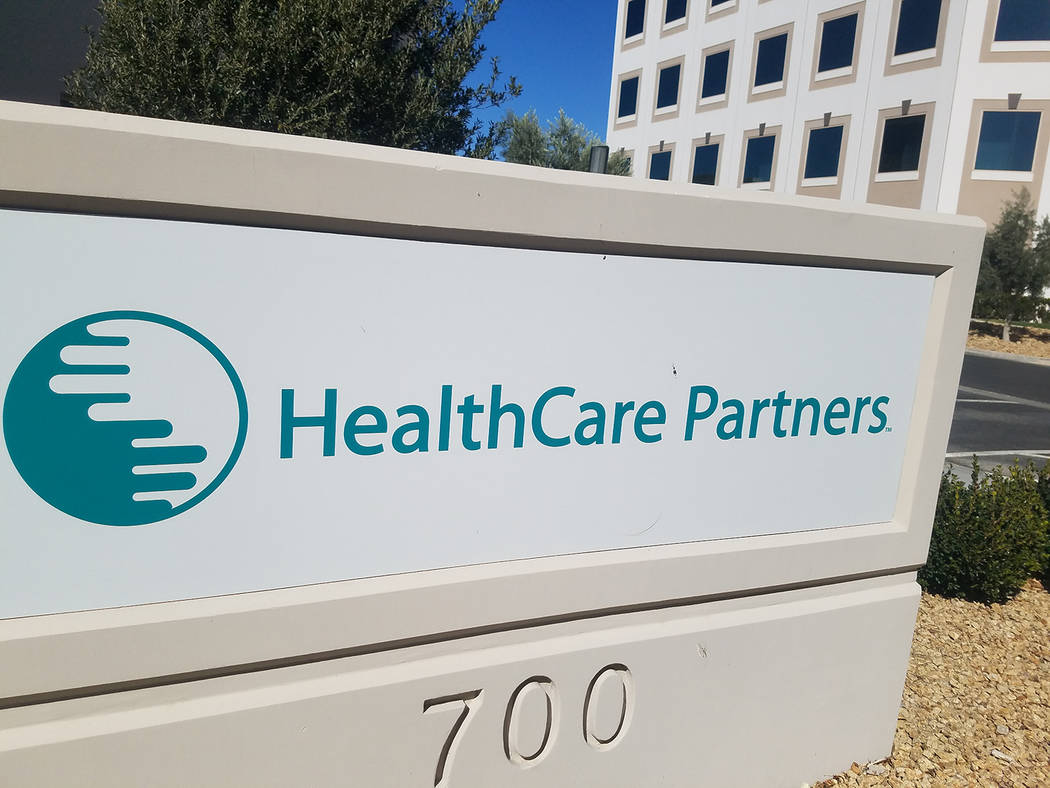Optum drops Nevada clinics from DaVita buyout amid antitrust scrutiny
UnitedHealth Group’s Optum is dropping plans to purchase the DaVita Medical Group physician clinics in Nevada after the Federal Trade Commission investigated the deal’s compliance with antitrust regulations.
DaVita, in a U.S. Securities and Exchange Commission filing last month, indicated that while Optum will continue with its planned purchase of DaVita, it will carve out the Nevada clinics. That, with 2018 business performance and projections for 2019 performance, will reduce the price it will pay for DaVita by $560 million to $4.34 billion.
DaVita, which operates HealthCare Partners in Pahrump and other Nevada sites and WellHealth Quality Care in Nevada, said the move was tied to “underlying business performance and in an effort to expedite the process to obtain (Federal Trade Commission) approval.”
The announcement follows an FTC review launched in March of the planned deal, SEC filings show, pursuant to the Antitrust Improvements Act, which requires companies undergoing acquisitions to prove the purchase wouldn’t create a monopoly.
DaVita Medical Group, based in Denver, said in an email that the company will “continue to work closely with regulators and Optum to finalize this transaction in a timely manner.”
Consumer concerns
UnitedHealth Group, which is based in Minnesota and owns Optum and its OptumCare clinics, accounts for 46 percent of the Medicare Advantage market in Nevada, making it the leader in the number of people covered under its plan.
Taking on the DaVita clinics could give the company an unfair advantage, creating an environment in which UnitedHealthcare could funnel its Medicare recipients to its own clinics.
That reduction in competition generally leads to an increase in the cost of care for patients, said Rob Austin, director in performance excellence at Navigant, a health-care consulting company in Chicago.
“There’s really an inherent conflict of interest in UnitedHealthcare owning all these different elements of how health care is delivered,” Austin said. “As health systems consolidate … the loser at the end of the day is the consumer and the patient.”
A spokeswoman for Optum declined to discuss the changes to the company’s DaVita acquisition in a December email.
“We are looking forward to completing our combination with DaVita Medical Group and continue to work diligently with regulators to achieve that,” she wrote.
The merger is expected to close in the first quarter of 2019, according to the SEC filing.
Growing appetite
There has been a growing appetite for mergers and acquisitions in health care in the past four years, according to the consulting firm PricewaterhouseCoopers.
In the 1990s, consolidation happened most often between hospital systems, said Tim Greaney, a health law expert from the University of California Hastings College of Law. Most mergers and acquisitions went unchallenged, and courts upheld the transactions that landed there, he said.
By the early 2000s, the FTC and state attorneys general started coming down harder on horizontal consolidations, mergers between entities offering the same service that could create a monopoly in the market.
“I think at least the status of the law now is pretty strong that horizontal mergers, which result in high market shares, are going to be questioned and probably challenged,” Greaney said.
In Idaho, the FTC successfully challenged a merger between physician practice Saltzer Medical Group and the Idaho-based St. Luke’s Health System, arguing the consolidation would thwart competition in the area’s primary care market.
St. Luke’s Health System divested.
‘Basic economics’
Vertical mergers, like the CVS Health-Aetna deal under federal review that would place pharmacy benefits and insurance management under the same roof, have only recently come under scrutiny as having potential to harm consumers.
“Even if there are some cost savings achieved by the synergies, the real question is whether it’ll be passed onto the buyer, the employer or the individual consumers,” said Greaney, who has testified before the California Department of Insurance as an expert witness in the case.
In most mergers, the question of impact comes down to whether the consumer would be slapped with greater costs for their care, Austin said.
“It’s basic economics,” he said.
Theoretically, UnitedHealth Group could close the loop. If the insurer were to acquire hospitals with physician clinics, the company might start to resemble a privately owned version of Kaiser Permanente, the managed care nonprofit based in Oakland, California, which Austin said uses its integrated model to put community care above profit.
Still, whether a private entity beholden to shareholders would take on a community-first vision is up for debate, he said.
“In this case, without the hospital, they’re going to steer their patients, regardless, to their own doctors,” Austin said. “Even if it’s not the doctor they need.”


















